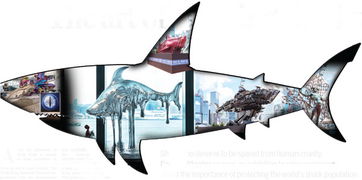Introduction: Fishing is a timeless activity that brings joy and relaxation to many people. Whether you are a beginner or an experienced angler, there is always something new to learn about the art of fishing. In this article, we will provide you with some valuable tips and methods to help you improve your fishing skills and catch more fish.
Choosing the Right Equipment 1.1. Rod and Reel: Selecting the right rod and reel is crucial for successful fishing. For beginners, it is recommended to choose a medium-action rod and a spinning reel. This combination is versatile and suitable for a wide range of fishing scenarios.

2. Line: The type of line you choose depends on the fishing environment and the fish you are targeting. Monofilament line is a popular choice due to its flexibility and strength. For heavier fish or fishing in deeper waters, braided line may be a better option.
3. Lures and Bait: Lures and bait come in various shapes, sizes, and colors. It is essential to research and understand the preferences of the fish you are targeting. Experiment with different lures and baits to see which one works best in your specific fishing environment.
Choosing the Right Location 2.1. Season and Weather: Fishing is highly dependent on the season and weather conditions. Research the best times to fish for the species you are targeting. Additionally, consider the weather forecast and choose a day with favorable conditions.
2. Water Depth and Current: The depth and current of the water can significantly impact your fishing success. Fish tend to congregate in areas with suitable depths and currents. Use a fishfinder or ask local anglers for information on the best spots to fish.
Techniques for Catching Fish 3.1. Casting: Proper casting techniques are essential for reaching your target accurately. Practice different casting techniques, such as the overhead cast, sidearm cast, and roll cast, to become proficient.
2. Bait Presentation: Once you have cast your line, it is crucial to present your bait or lure in an appealing way. Vary your retrieve speed and technique to mimic the natural movement of the fish's prey.
3. Patience and Sensitivity: Fishing requires patience and sensitivity. Pay close attention to the slightest movements of your fishing rod. If you feel a nibble or a pull, act quickly and set the hook properly.
Tips for Keeping Fish Alive 4.1. Keep the Fish in the Water: If you are not planning to keep the fish for eating, it is important to release them back into the water as quickly as possible. Use a dehooking tool to minimize the stress on the fish.
2. Bait Selection: Choose bait that is suitable for the fish you are targeting. Using the right bait increases the chances of survival for the fish after release.
Safety and Ethical Fishing 5.1. Stay Informed: Stay updated on local fishing regulations and guidelines. This includes size limits, bag limits, and catch-and-release policies.
2. Respect the Environment: Be mindful of your surroundings and leave no trace. Dispose of waste properly, avoid disturbing the natural habitat, and respect wildlife.
Conclusion: Fishing is a rewarding activity that can be enjoyed by people of all ages and skill levels. By following these tips and techniques, you can improve your fishing skills and increase your chances of catching more fish. Remember to stay patient, be prepared, and always prioritize the well-being of the fish and the environment. Happy fishing!












